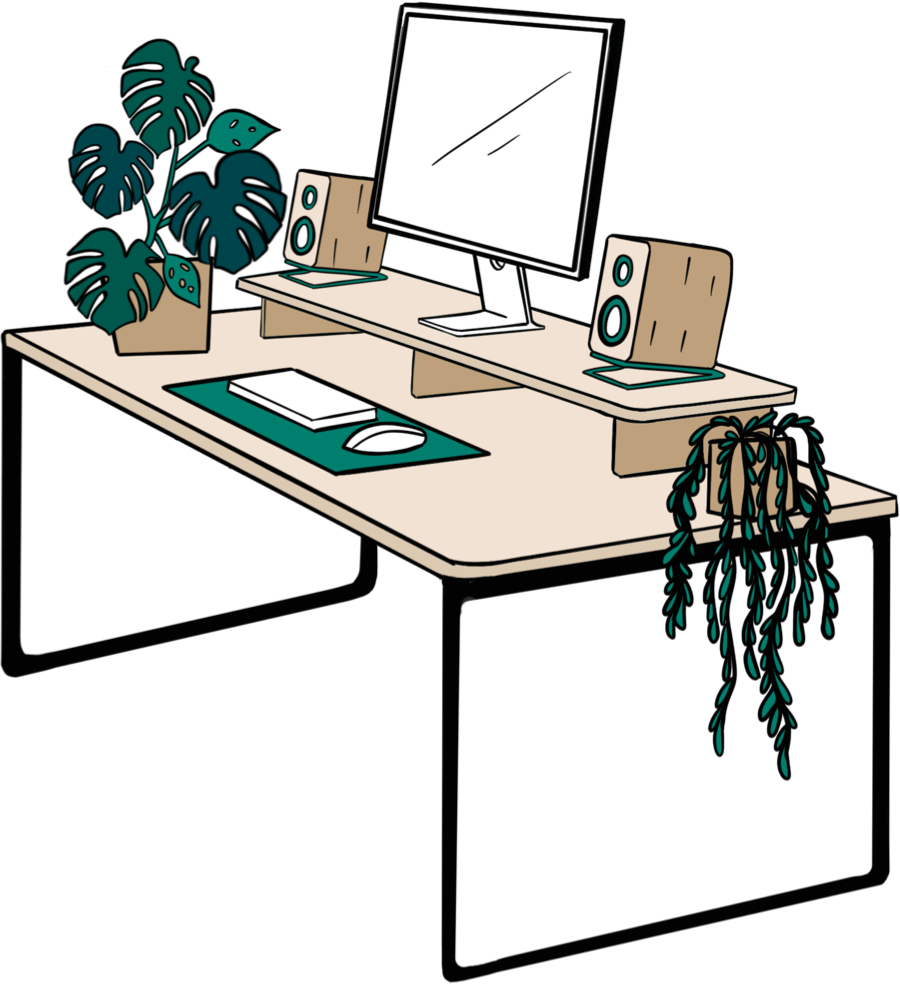Tell us about your move - are you buying, selling, or both?

Key takeaways
- The total cost of buying a home extends well beyond just the deposit and purchase price
- Essential upfront costs include legal fees, surveys, mortgage fees and Stamp Duty
- First-time buyers receive special Stamp Duty relief compared to other buyers
- Insurance and removals need to be arranged and paid for before completion
- Consider ongoing monthly costs like council tax and maintenance when budgeting
Buying a house involves much more than just paying the asking price and deposit. From the moment your offer is accepted on a house, you'll need to plan for various additional expenses that can significantly impact your budget.
Before you start your property journey, it's wise to set aside extra funds beyond your deposit to cover these crucial costs. Whether it's legal fees, surveys, removals, or ongoing expenses, understanding these financial commitments early on helps avoid surprises.
Here's a comprehensive breakdown of all the costs you'll likely encounter when buying and moving into your new home:
- Mortgage deposit = % of the home value
- Conveyancing fees = £800 - £2,000
- Disbursements = £380 - £445
- Mortgage fees = £100 - £600
- Mortgage broker = £150 - £600
- Surveys = £400 - £1,500
- Stamp Duty = 0% to 12% of the home value
- Removal costs = £350 - £2,000+
- Insurance = £150 - £400
- Furniture and fittings = Varies (see section 10)
- Ongoing costs = Varies (see section 11)
1. Deposit
% of the home’s purchase price
Purchasing a home is an exciting yet often stressful process, especially when it comes to finances. We understand the deposit can feel intimidating at first, but let’s break it down.
There are two types of deposits to be aware of. The mortgage deposit refers to the total amount of cash you’re contributing toward the home purchase. The exchange deposit is the portion you pay when contracts are signed and the sale becomes legally binding, usually 10% of the total. You don’t need to save two separate deposits, as the exchange deposit counts toward your mortgage deposit amount.
For example, say you’re buying a £300,000 home and putting a 20% down in cash. You would pay 10% (£30,000) at contract exchange, then the remaining 10% (£30,000) at completion. Your lender would cover the remaining 80% (£240,000) of the purchase price through your mortgage financing.
What happens on completion day?
If you’ve been on the property ladder a while and are using the proceeds of a current home, you may be able to put down a larger mortgage deposit on the new property. This decreases your required mortgage amount and results in lower average monthly repayments.
2. Conveyancing fees (legal fees)
£800 - £2,000
Buying a home carries a hefty legal process, you’re going to need a conveyancer to help guide you through.
We’d suggest allowing up to £2,000. The exact amount varies depending on which conveyancer you choose and your property purchase. It’s important to pick a conveyancer you feel comfortable with and trust to handle your transaction. If you need help, we have a guide on how to choose a conveyancer.
Do some research – get some quotes, and ask questions about their process, technology, and approach. This will give you a good sense of the best fit for your needs. The key is to find a conveyancer who explains things clearly to you, keeps you updated, and offers support every step of the way.

We make conveyancing make sense
At Eden, we put you first. We get the frustrations of conveyancing, Eden is here to make conveyancing more simple, and less stressful.
You'll have your own dedicated property lawyer who you can contact whenever you need, as well as 24/7 access to our online portal, MyEden.
3. Disbursements
£380 - £445
When buying a home, conveyancing fees cover what you pay your conveyancer for their services. Disbursements are additional expenses they’ll handle on your behalf.
Common disbursements include:
- Land registry fees (£90 - £140) to officially register the property in your name.
- Search fees (£250 typically) so your conveyancer can check for any issues with drainage, environmental factors, etc.
- ID and verification checks (£20 - £30) to confirm your identity and legal eligibility.
- Bank transfer fees (£20 - £25 per transaction) to transfer large sums of money.
You may also have extra costs depending on your specific situation, like needing to cover a gifted deposit or Help to Buy supplements. But don’t worry – your conveyancer will clearly explain any disbursements that apply to you.
4. Mortgage fees
Mortgage valuation: £100 - £600
When getting a mortgage, lenders want to be sure the home is worth what you’re paying. So, they require a property valuation, usually costing £100-£600. We know – another fee. But it ensures you are not overpaying for the property you are buying.
The exact cost depends on factors like the home’s size, type, and price. For most properties, plan on valuation fees in the low hundreds.
Remember, a mortgage valuation is different to a survey, but more on that later.
Mortgage fee: £0 - £2,500
Mortgage lenders also often charge an arrangement fee of £0-£2,500 depending on the lender to set up your loan. This covers their admin costs. The specific amount will vary from lender to lender.
This cost is often added to your total mortgage amount, and although this means you’ll dodge the upfront cost, it does mean you’ll be paying interest on it.
Check out our full guide on mortgages for more.
5. Mortgage broker
£150 - £600
Knowing where to start when it comes to choosing a lender for your mortgage can feel like an uphill climb. You could enlist the help of a mortgage broker to help you navigate the mortgage maze.
Brokers have extensive knowledge of the market and lots of experience finding the best loans. They may even have access to deals not widely available from lenders directly.
One thing to note – Brokers have different fee structures. Some charge you a service fee, others earn commission from the lender, and some do a combination. Be sure to ask up front so you understand how they work and avoid any unwanted surprises.
It’s important to find a broker that you trust will do the best for you and who explains mortgage options in a way that you understand.


6. Survey costs
£400 - £1,500
Getting a property survey is different to a mortgage valuation that we spoke about earlier. Whilst a mortgage valuation, evaluates your home’s value, a survey inspects any defects, damage, and issues. It’s like a check-up for your future home.
We recommend getting one before fully committing to the purchase of a property. Surveys can save you thousands by flagging repairs needed or problematic defects. It’s better to know upfront than find out later.
There are different levels to surveys. With some being more thorough than others. More thorough inspections provide more detail and logically cost more. The specifics depend on your home but expect to budget a few hundred to over a thousand pounds.
While another expense, a survey brings priceless peace of mind. It could end up saving you thousands or could even save you from a terrible investment.
7. Stamp Duty Land Tax (SDLT)
0% to 17% of the property price
When buying a home in England over a certain price, you’ll need to pay Stamp Duty Land Tax, charged by HMRC. The amount that you’ll owe depends on the purchase price and your situation.
First-time buyers get a higher threshold before paying SDLT:
- 0% on homes up to £300,000
- 5% on £301,00 to £500,00
- Standard rates on anything about £500,000
Standard rates:
- 0% on purchases up to £125,000
- 2% on £125,001 to £250,000
- 5% on £250,001 to £925,000
- 10% on £925,001 to £1.5 million
- 12% on £1.5 million and above
Buying an additional property that will not be your main residence? You'll need to pay an additional 5% Stamp Duty on all of the above brackets.
Still have questions? Learn more about Stamp Duty in our in-depth guide.
Land Transaction Tax
In Wales, the tax is called Land Transaction Tax (LTT), and it is paid to the Welsh Revenue Authority. The tax works a little differently from SDLT. There is a standard rate and a higher rate.
The higher rates apply in various circumstances. The most common is if you own several other properties and do not intend to live in the one you are purchasing as your main residence.
Here’s a breakdown of the rates.
Standard rates:
- 0% on homes up to £180,000
- 5% on £180,001 to £250,000
- 5% on £250,001 to £400,000
- 5% on £400,001 to £750,000
- 10% on £750,001 to £1.5 million
- 12% on anything over £1.5 million
Higher rates
- 4%% on homes up to £180,000
- 5% on £180,001 to £250,000
- 9% on £250,001 to £400,000
- 5% on £400,001 to £750,000
- 14% on £750,001 to £1.5 million
- 16% on anything over £1.5 million
Learn more about LTT here.
8. Removal costs
Between £350 and £2,000+
Moving can be a major undertaking, especially figuring out how to transport all your belongings. If it’s your first place you may be able to handle it in a few trips. But if you’re moving out of a larger home, you’ll likely need some professional help.
Doing it 100% solo will save money but takes time and energy loading up a rented van or truck repeatedly. Hiring removers depends on your home’s size, how much stuff you have, and the distance to your new place.
Many people will pack themselves, have movers transport everything, and then unpack themselves. You can pay more for full packing/unpacking services, but you’re going to be coughing up a premium. Either way, consider decluttering first – less stuff means lower moving costs.

9. Insurance
£150 - £400 (per year)
Getting insurance might not seem exciting, but it can give you priceless peace of mind in your new home. While not legally required, having both building and contents coverage is highly recommended. If you’re taking out a mortgage. Lenders will likely require you to take out building insurance at least.
Building insurance protects the home’s physical structure from damage (fires, storms, floods, etc.). You can see why your lender will require you to take this out.
Contents insurance covers replacing or repairing your possessions if they get damaged, destroyed, or stolen.
They are often purchased together under the same name, known as home insurance, but they are two separate policies.

10. Furniture and fittings
No average cost
If you’re buying a move-in-ready property, you may only have to consider minor cosmetics and a few new bits of furniture. Whereas if you’re buying a fixer-upper it can get expensive.
Replacing roofs, plumbing, appliances – it all adds up fast. Cosmetic upgrades like lighting, tiles, and cabinets pile on too.
The home’s condition and reno scope greatly affect the total price tag. A few coats of paint are one thing, a full gut job is another.
We’d suggest thinking through everything you want upgraded. Make sure your budget can stretch to cover it before purchasing.
It’s difficult to predict all costs upfront, the unexpected can happen and throw a big spanner in the works. The best you can do is plan and leave yourself a little wriggle room if things get sticky.
11. Ongoing costs
See below
The costs of homeownership don’t disappear once you have the keys. Mortgage payments are likely your biggest monthly expense. Energy bills can also rack up quickly, especially in older, poorly insulated homes.
You’ll need to budget for council tax too, usually £1,000 - £2,000 per year depending on property value. You’ll also need to consider utility bills, TV licenses, broadband – it can snowball into quite a lot.
With so many ongoing costs, carefully consider your budget when buying. Get accurate estimates for all the regular payments you’ll face as a homeowner. This ensures you can truly afford it.
It might also be a good idea to save up a financial buffer for surprise expenses. Things pop up when don’t expect them, best to be prepared if you can.
Average monthly outgoings
- Mortgage repayments = £800 - £1,500
- Energy bills = £100 - £250
- Water bills = £30 - £40
- Council tax = £100 - £200
- Broadband = £20 - £30
- Ground rent (if leasehold) = varies
- Maintenance = varies
Buying a home and moving involved a lot. From deposits and fees to monthly bills, the costs add up. It's important to consider everything that applies to you and your situation and budget accordingly.

Need conveyancing without the confusion?
At Eden, we’re dedicated to transparency, and making sure we manage all of the legal stuff so you can focus on what truly matters.
You’ll get your own dedicated property lawyer who you can contact whenever you need. You’ll also get access to our 24/7 online portal, ensuring you’re updated every step of the way.

